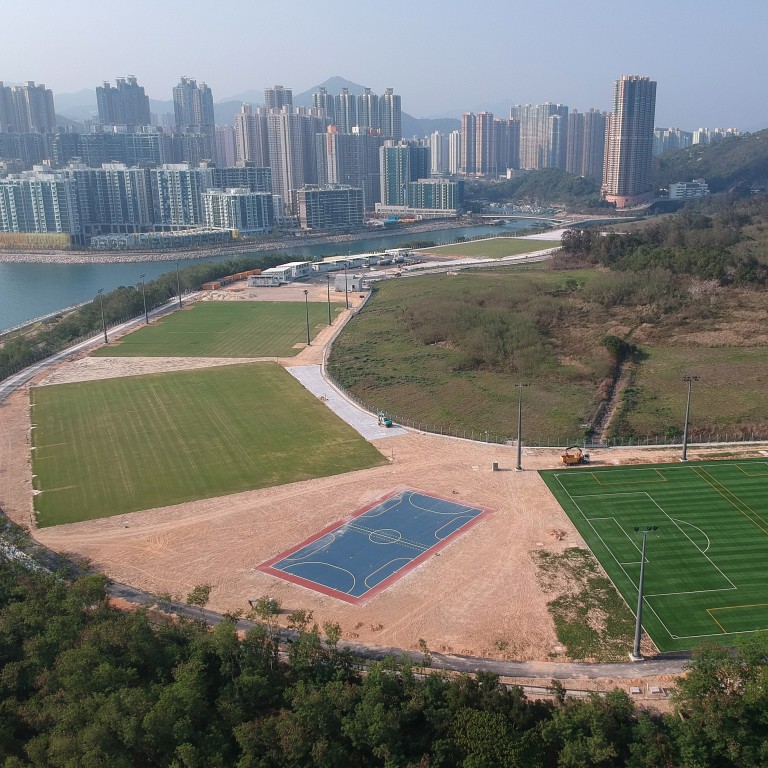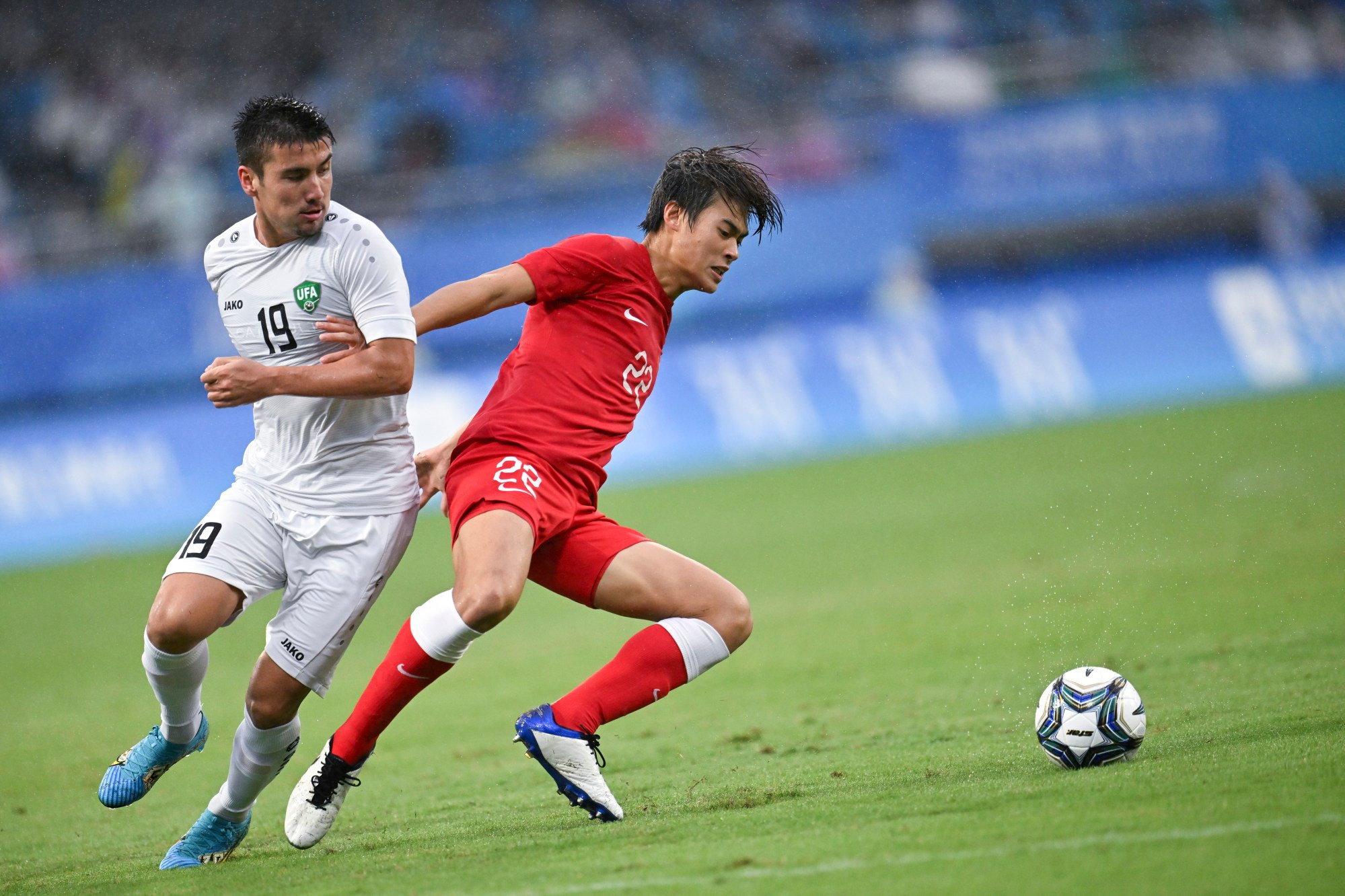
Hong Kong schools join Fifa football scheme, but can city stop talent leaving?
- Football For Schools (F4S) targets shift in local attitudes to sport by using football as a learning vehicle, with parents taking a role
- But long-term talent retention has been a problem for Hong Kong, and FA boss acknowledges a need for ‘support to players to encourage them to stay’
Hong Kong has joined a Fifa scheme to get more children playing football. Its next task is to stop them quitting and emigrating when they are older.
The city has signed up for the global governing body’s Football For Schools (F4S) programme, which Hong Kong Football Association chairman Eric Fok Kai-shan said was “only the beginning” as the city looks to develop more talent.
It is hoped the partnership can alter perceptions of sport in Hong Kong, where figures suggest few youngsters take regular enough exercise, but getting them started in football is only half the battle for the game’s local chiefs.
Hong Kong has struggled to retain promising players, and two members of the city’s under-23 squad who reached the Asian Games semi-finals, Ellison Tsang Yi-hang and Kyle Lau Ka-kiu, promptly moved to England to study.

Jorn Andersen, the national team’s head coach, bemoaned a situation whereby “the best young talents leave Hong Kong at 19 or 20 and stop playing football”.
Fok acknowledged the issue and linked it to the standard of football in the city’s Premier League when he launched the Fifa partnership at the Jockey Club HKFA Football Training Centre in Tseung Kwan O.
“We need to provide support to players to encourage them to stay,” Fok said. “This facility shows we are trying to provide more pitch availability. With more players, we can improve the standard of the Premier League.
“Universities are being more lenient with their curriculums to allow for training and competing. All these measures were implemented to support our athletes, and we hope to do more for them.”
But first the younger age groups. A recent University of Hong Kong study discovered only eight per cent of the city’s five-to-17-year-olds managed at least one hour’s moderate exercise per day – adding to the suspicion parents are content for their children to sacrifice sport in pursuit of academic success.
The F4S initiative embeds football into the education system and is aimed at children between the ages of four and 14. Fifa has given the HKFA HK$50,000 to implement the programme.
“This is a partnership with a single vision,” Fok said. “We want to make football accessible to children, through schools, from an early age. Only then can they develop a passion for it.
“This is a development programme, fully funded by Fifa, and it provides an opportunity to work closely with parents, so they have a supportive role. A big part of F4S is using football to teach life skills and support education. We want to encourage more children to be active, and for parents to see all the positive things that come from playing football.
“This is only the beginning. We will provide good feedback [to F4S] and evolve the programme to suit Hong Kong’s needs.”
The 14 Hong Kong schools enrolled include a number for children with special educational needs, and Fok said another primary objective was to “make football inclusive, and help disabled children integrate into society through the sport”.
Hong Kong is the 28th Asian region or country, and 103rd worldwide, to tie in with F4S.
Fatimata Sow, the director of F4S, said the initiative – which provides schools with apps, online learning programmes, equipment and coaching – could create a meaningful legacy in the city.
Can Hong Kong maintain Asian Games success? That is the HK$7 billion question
“The parents guide their child, so if they are conscious of football having a positive impact on children, they are more likely to go for it,” she said.
“We use schools as our entry point, so football is part of the child’s education. Our coaches create an awareness of how football can have a positive social impact, and we hope F4S can achieve a cultural shift in Hong Kong.”
Around 500 children participated in the project’s launch, which was attended by a glut of Fifa and HKFA officials.
“F4S provides a bridge for football and education,” Sow said. “We give the child their first contact with the ball, and use football to teach them about respect and communication.”

